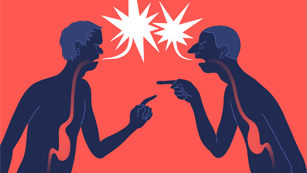
About Leila Rashidi
I particularly focus on: • Anxiety and Depression • Interpersonal/Relationship issues • Adjustment disorder • Goal setting • Work/Life balance • Anger Management • Domestic Violence • Family Conflict • Infidelity • Marital and Premarital • Self Esteem • Stress • Trauma and PTSD • Women's Issues
I’m bilingual and can offer my services both in Farsi and in English.
As a clinical counselling hypnotherapist (C.Hyp), I also implement the hypnotherapy techniques and interventions in accordance with highest service standards in the field of mental health and clinical psychotherapy and counselling services.
RP, CCC, CHyp, CRPO
Licence: Canada / 10004122
Licence: Ontario / 009083
(416) 835-0349
Services
I offer individual and couples therapy in the following specializations
As your therapist, I am compassionate and relatable. My approach is holistic and integrative, as I employ a variety of techniques and therapies. I offer a non-judgmental space where you can feel heard, acknowledged and supported. We will work with your strengths to develop strategies to transform the obstacles you’ve encountered into opportunities for growth and change.
Treatment Approach
Acceptance and Commitment (ACT)
Acceptance and Commitment Therapy (ACT) is a type of psychotherapy that helps you accept the difficulties that come with life. ACT is a form of mindfulness based therapy, theorizing that greater well-being can be attained by overcoming negative thoughts and feelings. Essentially, ACT looks at your character traits and behaviors to assist you in reducing avoidant coping styles. ACT also addresses your commitment to making changes, and what to do about it when you can't stick to your goals.
Coaching
In life coaching, therapists don't focus on treating mental illness. Instead, they help individuals realize their goals in work and in life. An executive coach, for example, may be enlisted to help a chief executive become a better manager, while a "love" coach may map out a plan to help a client find romantic fulfillment.
Cognitive Behavioural (CBT)
Cognitive-behavioral therapy stresses the role of thinking in how we feel and what we do. It is based on the belief that thoughts, rather than people or events, cause our negative feelings. The therapist assists the client in identifying, testing the reality of, and correcting dysfunctional beliefs underlying his or her thinking. The therapist then helps the client modify those thoughts and the behaviors that flow from them. CBT is a structured collaboration between therapist and client and often calls for homework assignments. CBT has been clinically proven to help clients in a relatively short amount of time with a wide range of disorders, including depression and anxiety.
Existential
Existential psychotherapy is based on the philosophical belief that human beings are alone in the world, and that this aloneness can only be overcome by creating one's own meaning, and exercising one's freedom to choose. The existential therapist encourages clients to face life's anxieties head on and to start making their own decisions. The therapist will emphasize that, along with having the freedom to carve out meaning, comes the need to take full responsibility for the consequences of one's decisions. Therapy sessions focus on the client's present and future rather than their past.
Family Systems
Family Systems therapists view problems within the family as the result not of particular members' behaviors, but of the family's group dynamic. The family is seen as a complex system having its own language, roles, rules, beliefs, needs and patterns. The therapist helps each individual member understand how their childhood family operated, their role in that system, and how that experience has shaped their role in the current family. Therapists with the MFT credential are usually trained in Family Systems therapy.
Humanistic
The humanistic method takes a positive view of human nature and emphasizes the uniqueness of the individual. Therapists in this tradition, who are interested in exploring the nature of creativity, love, and self-actualization, help clients realize their potential through change and self-directed growth. Humanistic therapy is also an umbrella term for gestalt, client-centreed therapy, and existential therapy.
Hypnotherapy
Hypnotherapy focuses on hypnosis, the Greek term for sleep. The practice uses exercises that relax people, bringing them to an altered state of consciousness. This process focuses on mastering self-awareness. Through trance-like analysis, hypnosis decreases blood pressure and heart rate, putting one's physical body at ease. Working with memories, hypnotherapy helps a person to reframe, relax, absorb, dissociate, respond, and reflect. The process reconstructs healthier associations with a person's past events. Dealing with a wide range of conditions, such as anxiety and depression, people become responsive to new solutions that can lead to personal development through hypnotherapy.
Mindfulness-Based (MBCT)
For clients with chronic pain, hypertension, heart disease, cancer, and other health issues such as anxiety and depression, mindfulness-based cognitive therapy, or MBCT, is a two-part therapy that aims to reduce stress, manage pain, and embrace the freedom to respond to situations by choice. MCBT blends two disciplines--cognitive therapy and mindfulness. Mindfulness helps by reflecting on moments and thoughts without passing judgment. MBCT clients pay close attention to their feelings to reach an objective mindset, thus viewing and combating life's unpleasant occurrences.
Narrative
Narrative Therapy uses the client's storytelling to indicate the way they construct meaning in their lives, rather than focusing on how they communicate their problem behaviors. Narrative Therapy embraces the idea that stories actually shape our behaviors and our lives and that we become the stories we tell about ourselves. There are helpful narratives we can choose to embrace as well as unhelpful ones. Although it may sound obvious, the power of storytelling is to elevate the client--who is the authority of their narrative--rather than the therapist, as expert.
Positive Psychology
Unlike traditional psychology that focuses more on the causes and symptoms of mental illnesses and emotional disturbances, positive psychology emphasizes traits, thinking patterns, behaviors, and experiences that are forward-thinking and can help improve the quality of a person's day-to-day life. These may include optimism, spirituality, hopefulness, happiness, creativity, perseverance, justice, and the practice of free will. It is an exploration of one's strengths, rather than one's weaknesses. The goal of positive psychology is not to replace those traditional forms of therapy that centre on negative experiences, but instead to expand and give more balance to the therapeutic process.
Psychoanalytic
Psychoanalysis is an in-depth form of therapy. The client learns what conscious and unconscious wishes drive their patterns of thinking and behavior on the theory that, by making the unconscious conscious, they will make more educated choices over how they think and act. Traditional psychoanalysts may treat clients intensively but reveal little of their own views or feelings during therapy. Modern psychoanalysts may treat less frequently and take a more interactive approach.
Solution Focused Brief (SFBT)
Solution-focused therapy, sometimes called "brief therapy," focuses on what clients would like to achieve through therapy rather than on their troubles or mental health issues. The therapist will help the client envision a desirable future, and then map out the small and large changes necessary for the client to undergo to realize their vision. The therapist will seize on any successes the client experiences, to encourage them to build on their strengths rather than dwell on their problems or limitations.
F.A.Q
You may also ask your questions by sending us an email or submitting the concat us form .
-
Consultation with two languages are availible
Leila Rashidi offers her sessions in Farsi language as well.
-
How much is the cost per session?
Cost per Session: $200
-
What are the mothod of payment?
We accept Cash, Mastercard, Paypal, Visa, Wire
Contact
To book an appointment please fill in and submit the form below or You may contact us
Email:
Newlifepsychotherapy1@gmail.com
Call:
+1 (416) 835-0349












